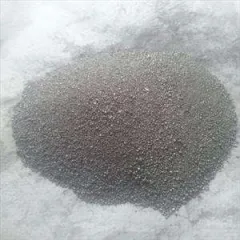Molybdenum Carbide: A Pioneer in High-Performance Catalytic Materials and Future Power Applications
Molybdenum carbide (Mo â‚‚ C), as a novel change steel carbide, exhibits superior physical and chemical residential properties, making it an outstanding driver in various responses, especially in hydrogen manufacturing and co2 decrease, with wide application potential customers. Mo â‚‚ C is composed of molybdenum (Mo) and carbon (C), including a high melting factor (~ 2690 ° C), superb electrical conductivity, thermal stability, and mechanical stamina. Most significantly, its surface is abundant in energetic websites that can successfully adsorb and turn on particles, making it an ideal catalytic product. Premium Mo â‚‚ C can be prepared making use of approaches such as straight carburization, chemical vapor deposition (CVD), sol-gel process, and microwave-assisted synthesis. These innovative methods supply a strong structure for checking out Mo â‚‚ C’s potential in many applications.
(Molybdenum Carbide Powder)
Recently, research study has shown that Mo â‚‚ C excels in multiple areas, including effective hydrogen advancement response (HER) drivers, outstanding CO â‚‚ decrease drivers, superior hydrodesulfurization (HDS) performance, and superior lithium-ion battery anode products. For example, in acidic atmospheres, Mo â‚‚ C can accomplish fast and stable water splitting to generate hydrogen with reduced overpotential and Tafel slope near theoretical values. In transforming carbon monoxide â‚‚ right into beneficial chemicals like formic acid or methanol, Mo â‚‚ C demonstrates high selectivity and conversion efficiency. Throughout petroleum refining, Mo â‚‚ C can finish HDS reactions at reduced temperatures with greater selectivity and activity. As a lithium-ion battery anode, it offers higher ability and cycle life. These study searchings for have actually significantly driven the industrial application of Mo â‚‚ C from lab setups.
Mo â‚‚ C showcases considerable applications across different markets. In hydrogen manufacturing and storage, the Dalian Institute of Chemical Physics, Chinese Academy of Sciences, developed an effective electrolyzer based on Mo â‚‚ C nanosheet varieties, attaining stable water splitting at room temperature level, lowering power intake, and improving hydrogen pureness. For clean power conversion, Stanford College created a photoelectrochemical gadget composed of Mo â‚‚ C nanowires that can straight convert CO â‚‚ into liquid gas under light problems, minimizing greenhouse gas exhausts while supplying clean gas sources. In environmental management, limit Planck Institute for Solid State Research study located that Mo â‚‚ C-modified triggered carbon fibers dramatically improve SO â‚‚ capture effectiveness and are easily regrowed for repeated use. Additionally, in new energy storage tools, researchers at KAIST reported a sodium-ion battery using Mo â‚‚ C as the anode material, identified by quick charge-discharge rates, exceptional cycle security, and power density exceeding 400 Wh/kg, guaranteeing for future smart grids and electric lorries.
()
In spite of significant success in Mo â‚‚ C products and relevant innovations, obstacles remain in functional promotion and application, such as price issues, large manufacturing technology, ecological friendliness, and standardization. To overcome these obstacles, continuous technology and enhanced teamwork are crucial. On one hand, deepening essential study to discover new synthesis approaches and enhance existing processes can continually lower manufacturing expenses. On the other hand, developing and refining sector requirements promotes worked with growth amongst upstream and downstream firms, constructing a healthy and balanced ecological community. Universities and study institutes need to raise instructional investments to grow even more high-quality specialized skills. In summary, Mo â‚‚ C, as an extremely promising high-performance catalytic product, is slowly transforming different aspects of our lives. With ongoing technical maturation and perfection, Mo â‚‚ C is expected to play an irreplaceable duty in a growing number of areas, bringing more comfort and benefits to human society in the coming years.
TRUNNANO is a supplier of Molybdenum Carbide with over 12 years of experience in nano-building energy conservation and nanotechnology development. It accepts payment via Credit Card, T/T, West Union and Paypal. Trunnano will ship the goods to customers overseas through FedEx, DHL, by air, or by sea. If you want to know more about Molybdenum Carbide, please feel free to contact us and send an inquiry(sales8@nanotrun.com).
All articles and pictures are from the Internet. If there are any copyright issues, please contact us in time to delete.
Inquiry us


